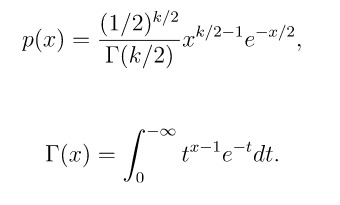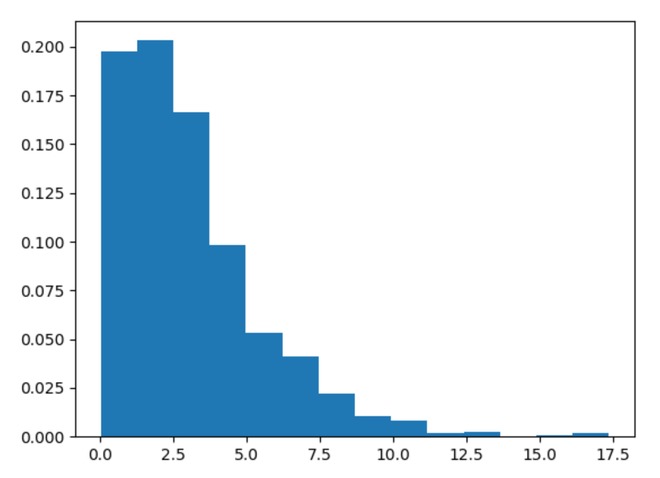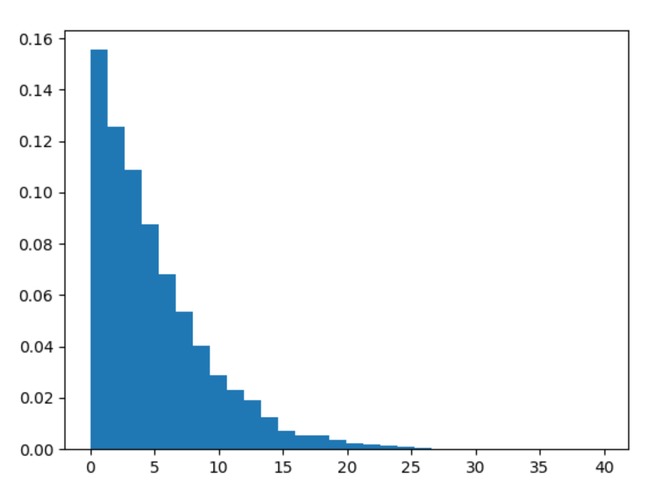借助chisquare()方法,可以使用此方法获得chi-square分布。主要地,我们可以在假设检验中使用这种分布。

chi-square分配
用法:numpy.random.chisquare(df, size=None)
参数:
1)df-自由度数,必须大于0。
2)size-标量数组的输出形状。
返回:返回标量numpy数组。
范例1:
在此示例中,我们可以看到,通过使用chisquare()方法,我们可以获取chi-square分布并使用此方法返回标量numpy数组。
Python3
# import chisquare
import numpy as np
import matplotlib.pyplot as plt
# Using chisquare() method
gfg = np.random.chisquare(3, 1000)
count, bins, ignored = plt.hist(gfg, 14, density = True)
plt.show()输出:
范例2:
Python3
# import chisquare
import numpy as np
import matplotlib.pyplot as plt
# Using chisquare() method
gfg = np.random.chisquare(5, 10000)
gfg1 = np.random.chisquare(gfg, 10000)
count, bins, ignored = plt.hist(gfg1, 30, density = True)
plt.show()输出:
相关用法
注:本文由纯净天空筛选整理自Jitender_1998大神的英文原创作品 numpy.random.chisquare() in Python。非经特殊声明,原始代码版权归原作者所有,本译文未经允许或授权,请勿转载或复制。


